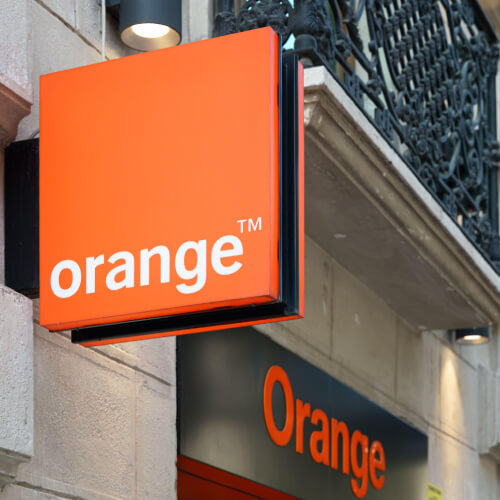Mari-Noëlle Jégo-Laveissière insists Big Tech investment contribution will help meet EU Digital Decade targets and rebalance network capacity and coverage.

MWC 2023 – Mari-Noëlle Jégo-Laveissière, Orange deputy CEO, is adamant that any network investment contribution made by Big Tech will be earmarked for extending coverage and increasing capacity to cope with surging volumes of traffic.
"We're not [going] to make more money on Orange's bottom line, that's clear," she told Light Reading against a noisy Hall 3 backdrop at the operator's stand at this year's Mobile World Congress (MWC). "The idea is to better balance coverage extension and capacity."
Jégo-Laveissière insisted that helping to meet EU Digital Decade targets, which includes "gigabit for everyone" in Europe, was a key motivator for establishing new commercial agreements with Big Tech.
Figure 1:  Orange has been calling for Big Tech to contribute to infrastructure costs.
Orange has been calling for Big Tech to contribute to infrastructure costs.
(Source: l_martinez/Alamy Stock Photo)
The so-called "fair share" discussion was inevitably one of the hot topics at MWC 2023. The European Commission recently kick-started a 12-week consultation with industry about whether or not the likes of Alphabet, Amazon, Meta and Netflix should pay telcos network usage fees, rather than operators footing the entire infrastructure bill.
Jégo-Laveissière's boss, Orange CEO Christel Heydemann, used her keynote address at MWC 2023 to demand that Big Tech companies contribute to the cost of infrastructure that supports huge volumes of their traffic.
The governments of France, Italy and Spain, which clubbed together last year to produce a joint document complaining about Big Tech, estimated that the five largest online content providers account for 55% of Internet traffic.
According to various reports commissioned by the European Telecommunications Network Operators' Association (ETNO), a telco group, the cost of delivering "over-the-top" (OTT) traffic over EU telecom networks results in between €36 billion (US$38.2 billion) and €40 billion ($42.5 billion) in annual costs to telecom providers.
Playing with words?
Light Reading asked Jégo-Laveissièr if the notion that Big Tech doesn't generate traffic – it's rather the customers who request it – resonated in any way. It didn't.
"You can play with words," she said. "[Big Tech] are providing services our customers love, and I'm not blaming them for that. Not at all. But we need to work on the quantity of data sent. There are many things we can do on the technical side and the customer experience side."
What then would Orange like to see emerge from the EC's consultation process?
"The objective is to make sure we have commercial discussions with the big players in a framework defined by the commission," she said. "This framework needs to be fully transparent and open."
Jégo-Laveissièr also wants to extend "engineer discussions" between network operators and hyperscalers to further explore ways of limiting energy consumption without affecting customer experiences.
Related posts:
— Ken Wieland, Contributing Editor, special to Light Reading
Read more about:
EuropeAbout the Author(s)
You May Also Like











